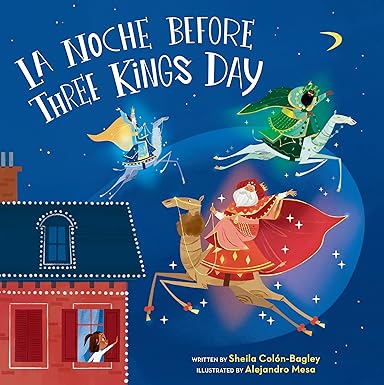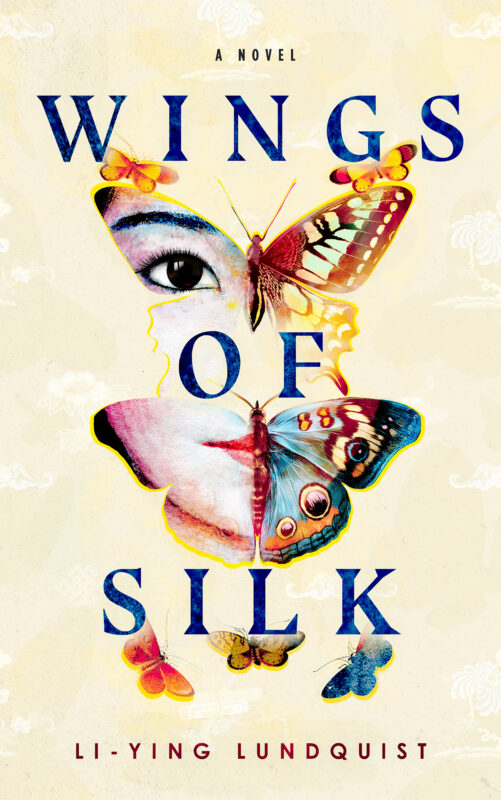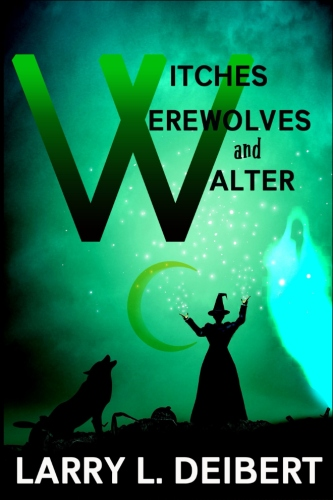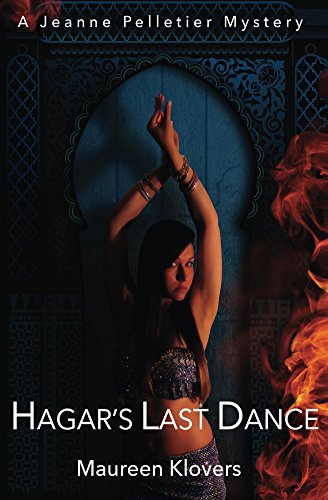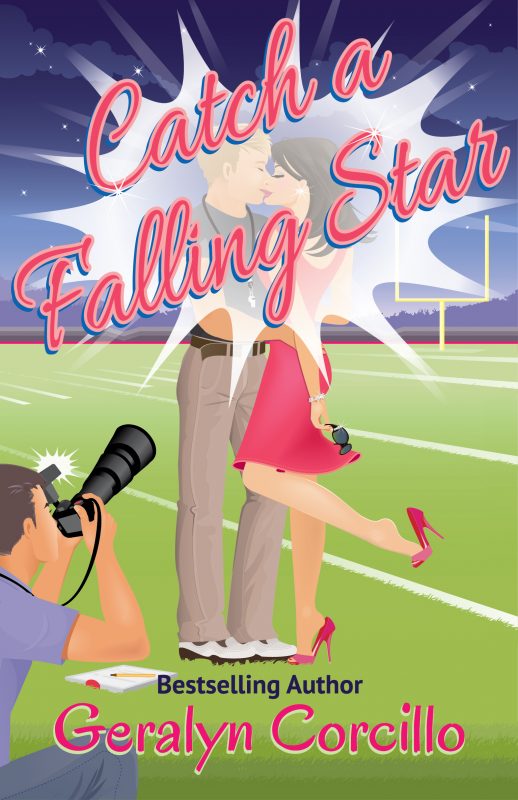Time Management: Writing Through the Holiday Season
November 28, 2009 by A Slice of Orange in category ArchivesAs the holidays approach, our lives get busier. First there is Thanksgiving, and everyone is either cooking or going to someone’s house who is cooking. Then come the December holidays where there are more visits with friends and family, shopping for gifts, cards to be sent, holiday parties at work, at home, with friends, with family. Any way you look at, you’re going to have demands on your time that you don’t have the rest of the year. A lot of the free time you usually devote to writing might be allocated to preparing for the holidays, forcing you to be away from your computer. How is a writer to stay on track when all this is going on?
By scheduling your writing time and sticking to it.
This might involve a shift in your schedule. Maybe you have to get up an hour earlier each morning or write on your lunch hour or bring the Alpha Smart to the kids’ football games. Whatever it takes, you can make it happen.
Here are some suggestions for staying on track with your writing while getting through the holidays. (Note: This also works for the rest of the year!)
1. Set reasonable goals. I work full time, so during the week I have less energy to give to my writing; therefore, I set small page goals Monday through Friday, currently 4 pages a day. On Saturdays when I have more time and more energy, I write 10 pages. On Sundays I am off to give my brain a rest; however, Sundays can also be used to make up for lost time if I fall behind. Whatever your goals are, make them realistic and achievable. Impossible goals are failure waiting to happen.
2. Rearrange your schedule. I have discovered I do my better writing in the morning when I am fully rested, so I wake up an hour early during the week to accomplish my page goals for the day. Usually I achieve the whole 4 pages, but even if I only get 2 done in the morning, that leaves only 2 more to write in the evening. Goal achieved. (Another advantage to waking up very early is that the household is usually still asleep and the phone doesn’t ring!)
3. Prepare for events. If you know you are having twenty people for dinner on a day when you normally would write 6 pages, set a reasonable goal for that day. Maybe you can only write 3 pages that day, but since you have nothing scheduled for Sunday you can write the additional 3 that day, keeping you on track. Or maybe you get up really early and knock out the 6 pages at 5AM. Or maybe you assign those 6 pages to another day because there is no way you would get the writing done with this huge dinner to prepare. Do whatever works best for you, guilt-free, as long as you set the right goal and stick to it.
4. Set expectations with family. Make an announcement to your family that you are setting aside a certain time for writing. No one should disturb you during this time unless there is blood or fire involved. Sometimes our spouses and kids can unwittingly sabotage our efforts to write. Non-writers usually don’t understand that just because we are sitting at home, we are actually working. Sometimes a little grandstanding is required to get the point across, but most of the time your family wants you to be happy. Once they understand that this writing thing actually makes you happy, they will most likely try their best to help you achieve your goals.
5. Get enough rest. Waking up an hour early usually means you have to pay back that hour in sleep time. Maybe you need to go to bed an hour earlier at night. Record your favorite programs to watch later (maybe on that Sunday when you’re not writing) and hit the hay an hour earlier. Lack of sleep leads to irritability and poor health, and no one wants to be sick for the holidays!
6. Eat right. With all the holiday goodies around, it’s very tempting to let nutrition slide. However, in order to juggle the holidays along with writing and your normal life, you need all the energy you can get. Go ahead and have that pumpkin pie, just don’t forget the salad beforehand.
The holidays are meant to be a time of thanks for our blessings, of hope for the new year, not a time of stress and frustration. Set your writing goals so you can keep moving forward on your project even while the holidays are happening around you. Set those goals for success, not failure, even if it means you are writing less pages than you normally would. Enjoy your friends and family with the security of knowing that you are achieving your goals without taking away from the joy of the season. Preparation is the key.
0 0 Read moreA Fantasy Life by Janet Quinn Cornelow
November 28, 2009 by A Slice of Orange in category Archives
Thanksgiving is a time to think about all the things for which we are thankful. I am thankful my job hasn’t gone bankrupt. I am thankful for my children and their spouses. I am thankful for Chewbaca, my dog, and Teddi, my cat, who keep my life interesting.
Most of all I am thankful that I can write, for without my storytelling, I would not be happy. I am really happy that I am finally getting back into the writing after hurting my back. The pain in my back I am not so thankful for.
For Thanksgiving we went to my son’s house. My daughter-in-law Jessi wanted to have the holiday in her new house. It is the first time in thirty-some years that I have not cooked dinner. It really seemed strange. On the plus side, I didn’t have to clean house. On the other side, I actually had to leave home and I had to bring food with me. I felt like I was moving out. Then Jessi didn’t have enough pans. I knew I should have taken my large pan to cook the potatoes.
She did an admirable job and got everything done only 15 minutes later than she wanted. She doesn’t cook, so she was worried she was going to poison someone. Her turkey was perfect, but I’m not sure she believed any of us. The potatoes were wonderful also. I couldn’t believe that they got eighteen people seated for dinner in their small house. One of the sofas went to the back so they could set up tables.
Then my sister and I got lost going home, again. I think I finally figured out where we went wrong. Neither of knew there was so much undeveloped land in
It was nice to not have to cook yesterday, but I really missed having turkey sandwiches today. I bought a turkey to cook over the weekend, but I think we will be waiting until Christmas for leftovers.
I hope everyone enjoyed their Thanksgiving.
1 0 Read moreJanuary Online Class: “The Purpose Driven Scene” with Lynn Kerstan
November 26, 2009 by A Slice of Orange in category Archives********** permission to forward **********
Hi everyone! Check out the exciting online classes offered by the
Orange County Chapter of RWA!
“The Purpose Driven Scene”
with Lynn Kerstan
January 11 to February 6, 2010
Enrollment Information at http://www.occrwa.org/onlineclassJan10.html
COST: $20 for OCC members, $30 for non-members
If you have specific questions, email occrwaonlineclass@yahoo.com
ABOUT THE CLASS:
Scenes are the building blocks of a novel. But while a scene is advancing the book’s story question, each scene is, in itself, a story in miniature.
This workshop focuses on how to develop a scene that is chock-full of character development, conflict, emotion, and—for the reader—a vivid sense of “being there.”
We begin with establishing the scene goal of the focal character, along with levels of motivation, emotional stakes, and expectations.
Then we consider the opposition, because there can never be a straight line from wanting to getting. How does the focal character deal with the antagonist, which might even be her own inadequacy or fear?
We explore why the character must meet with disaster in every scene. Failure means a new plan, or a change of goals. Success is worse, because it always leads to unexpected consequences.
WeÌll examine the initiating incident, scene openings, working with scene and sequel, character intimacy through focused POV, ways to create exciting scenes and settings, and how to draw the reader into the next chapter.
Above all, we’ll never lose sight of the most important element: translating events into feelings. Every scene, every “beat” in a scene, must evoke an emotion in the character that resonates in the emotions of the reader.
ABOUT THE INSTRUCTOR:
Lynn Kerstan, former college professor, folksinger, professional bridge player, and nun, is the author of nine Regency romances, seven historical romances, and three novellas. She is presently developing a paranormal series.
A five-time RITA Finalist (one win), she is regularly featured on awards lists. Since Romantic Times launched its “Top Picks” feature, every Kerstan novel has been a Top Pick. Two have been selected by Library Journal for its “Best Books of the Year” list (2002 and 2003), and Dangerous Passions was named to Booklist´s Top Ten Romances of 2005 list.
For many years a teacher of English literature and writing at the Catholic University of America in Washington, D.C. and the University of San Diego, Kerstan now conducts popular-fiction workshops for writers groups and conferences. An Internet junkie, she can be found online at www.StoryBroads.com, blogging with Anne Stuart, Maggie Shayne, Patricia Potter, Tara Taylor Quinn, and Suzanne Forster.
Kerstan lives an exemplary life Coronado, California, where she plots her stories while riding her boogie board, walking on the beach, and watching Navy SEALs jog by.
She wrote two more Special Editions for Silhouette, but she preferred other kinds of fiction, so when she was asked if she would be interested in writing a Victorian mystery series for Berkley, she jumped at the chance to explore her love of mysteries. She contacted her brother-in-law in London and he found old, original London newspapers from the 1880s and a host of books on Victorian households. These books and newspapers were priceless guides to her understanding of the Victorian world of Inspector Witherspoon and Mrs. Jeffries.
In addition to writing the Mrs. Jeffries’ series, she has also written six Young Adult novels for Berkley under her maiden name, Cheryl Lanham. Emily and her family live in Southern California.
Enrollment Information at http://www.occrwa.org/onlineclassJan10.html
COST: $20 for OCC members, $30 for non-members
Coming in February 2010–
“Fast Draft and Revision Hell†with Candace Havens
In the first two weeks you will learn a step-by-step process to help you finish your work in progress and in the second two weeks you learn how to polish your manuscript.
http://www.occrwa.org/onlineclasses.html. Check out our full list of workshops.
Want to be notified personally two weeks before each class? Be sure
you’re signed up for our Online Class Notices Yahoo Group! Sign up at
the bottom of http://www.occrwa.org/onlineclasses.html or send a blank
email to OCCRWAOnlineClassNotices-subscribe@yahoogroups.com
********** permission to forward **********
0 0 Read morePress Release posted by Isabel Swift: Harlequin launches digital-only publishing house
November 24, 2009 by A Slice of Orange in category Archives tagged as Carina, Digital only publishing, Harlequin, launchFor Immediate Release
Harlequin launches digital-only publishing house
Carina Pressâ„¢ currently accepting submissions
Toronto, ON (November 9, 2009) – Harlequin Enterprises Limited, the global leader in series romance and one of the world’s leading publishers of women’s fiction, announced today the launch of Carina Press™,a digital-only publishing house that will operate independently of their traditional publishing businesses.
Carina Press is a digital-only publishing house whose eBooks will be sold direct to consumers through the Carina Press Web site and numerous third-party Web sites. Carina Press will publish a wide range of women’s fiction—from romance to erotica, science fiction to mystery, family sagas to choose your own adventures, horror to thriller and more, including every conceivable subgenre of these categories.
“As a digital-only publisher Carina Press is a natural extension to our business; it builds on our digital strength and leadership position. We expect to discover new authors and unique voices that may not be able to find homes in traditional publishing houses,†said Donna Hayes, CEO and Publisher of Harlequin Enterprises. “It definitely gives us greater flexibility in the type of editorial we can accept from authors and offer to readers. As well, we hope to reach a new group of readers with niche editorial.â€
Brent Lewis, Vice President Digital, is delighted to announce Angela James is joining Carina Press as Executive Editor. A veteran of the digital publishing industry, James is a well-known advocate for digital publishing. James has enjoyed a long and varied publishing career including senior editorial positions at digital-first publishers. “I have admired Harlequin’s digital initiatives for years, and have always thought of them as leaders in the digital arena, so I’m unbelievably excited to join the Carina Press team,†said James. “I believe Harlequin can bring digital publishing to the next level for both authors and readers.â€
Lewis added, “Angela has been a key player in growing the digital marketplace for romance. Her experience and insight is a tremendous benefit to the Carina Press team.â€
Carina Press is currently accepting submissions in all genres of commercial fiction. Carina Press will consider shorter length stories, genre novels between 50,000 to 100,000 words and longer and complex narratives of over 100,000 words. Carina Press will also acquire books that have been previously released in print form, but for which the author has either retained digital rights or had digital rights revert to them. All submissions should be sent to submissions@carinapress.com.
Carina Press plans to launch in summer 2010 and will release new titles on a weekly basis. Between now and the launch, readers and writers can follow the progress of Carina Press via their blog.
For full submission guidelines and more information on Carina Press please go to http://www.carinapress.com/.
About Harlequin Enterprises
Harlequin Enterprises Limited is the global leader in series romance and one of the world’s leading publishers of books for women, with titles issued worldwide in 28 languages and sold in 114 international markets. The company produces over 110 titles monthly in print and digital and publishes more than 1,100 authors from around the world. Harlequin Enterprises Limited is a wholly owned subsidiary of Torstar Corporation, a broadly based media company listed on the Toronto Stock Exchange (TS.B). Harlequin’s Web site is located at www.eHarlequin.com. Harlequin has offices in 19 countries, including offices in Toronto, New York and London. For more information please visit www.eHarlequin.com or press.eHarlequin.com.
For more information, please contact:
Malle Vallik
Director, Digital Content & Social Media
416-445-5860
malle_vallik@harlequin.ca
It’s About Time by Monica Stone, Member at Large
November 19, 2009 by Marianne H. Donley in category Archives tagged as Member At Large, Monica StonerTime is a four letter word. No matter how hard we work, we never have enough time. We can save time, waste time, lose time, make time, but we can never create time. We can kill time, find time, steal time, juggle time but still time gets away from us. Somehow twenty four hours just don’t seem to be enough time yet I suspect if we could create thirty six hour days we’d still not have enough time.
As writers we seem to constantly need just a little bit more time. Time to write of course but also time to perform those every day miracles that seem to need our time and no one else’s. Somehow only we can plan meals, sort laundry, mop floors. And if we add more commitments to our time all too often we find time for those commitments and not our writing.
When good causes come calling I find it’s easier to commit myself to a donation than to time but of course they’d rather have some of my precious time. How can we put a monetary value on something we can’t touch and never have enough of?
Then there’s the whole sleep thing. We’re told we need more sleep but again there just does not seem to be time for eight hours of doing nothing but recharging our bodies. Of course this is one of the places where we really do need to make time or we’ll find ourselves running out of time.
I understand there are some time management blogs and courses available. I’ll look into them as soon as I can find the time.
Monica Stoner
You have enemies? Good. That means you’ve stood up for something.
-Winston Churchill
Affiliate Links
A Slice of Orange is an affiliate with some of the booksellers listed on this website, including Barnes & Nobel, Books A Million, iBooks, Kobo, and Smashwords. This means A Slice of Orange may earn a small advertising fee from sales made through the links used on this website. There are reminders of these affiliate links on the pages for individual books.
Search A Slice of Orange
Find a Column
Archives
Featured Books
LA NOCHE BEFORE THREE KINGS DAY
La Noche Before Three Kings Day is a perfect holiday tale.
More info →HAGAR’S LAST DANCE
By day, Jeanne Pelletier is a small-town girl toiling in obscurity at a stuffy Washington, D.C., law firm; by night, she’s Zahira, the city’s newest belly dancing sensation.
More info →CATCH A FALLING STAR
A TV star tells the paparazzi she's engaged to a high school football coach, but she doesn't tell him … because she barely even knows him.
More info →Newsletter
Contributing Authors
Search A Slice of Orange
Find a Column
Archives
Authors in the Bookstore
- A. E. Decker
- A. J. Scudiere
- A.J. Sidransky
- A.M. Roark
- Abby Collette
- Alanna Lucus
- Albert Marrin
- Alice Duncan
- Alina K. Field
- Alison Green Myers
- Andi Lawrencovna
- Andrew C Raiford
- Angela Pryce
- Aviva Vaughn
- Barbara Ankrum
- Bethlehem Writers Group, LLC
- Carol L. Wright
- Celeste Barclay
- Christina Alexandra
- Christopher D. Ochs
- Claire Davon
- Claire Naden
- Courtnee Turner Hoyle
- Courtney Annicchiarico
- D. Lieber
- Daniel V. Meier Jr.
- Debra Dixon
- Debra H. Goldstein
- Debra Holland
- Dee Ann Palmer
- Denise M. Colby
- Diane Benefiel
- Diane Sismour
- Dianna Sinovic
- DT Krippene
- E.B. Dawson
- Emilie Dallaire
- Emily Brightwell
- Emily PW Murphy
- Fae Rowen
- Faith L. Justice
- Frances Amati
- Geralyn Corcillo
- Glynnis Campbell
- Greg Jolley
- H. O. Charles
- Jaclyn Roché
- Jacqueline Diamond
- Janet Lynn and Will Zeilinger
- Jaya Mehta
- Jeannine Atkins
- Jeff Baird
- Jenna Barwin
- Jenne Kern
- Jennifer D. Bokal
- Jennifer Lyon
- Jerome W. McFadden
- Jill Piscitello
- Jina Bacarr
- Jo A. Hiestand
- Jodi Bogert
- Jolina Petersheim
- Jonathan Maberry
- Joy Allyson
- Judy Duarte
- Justin Murphy
- Justine Davis
- Kat Martin
- Kidd Wadsworth
- Kitty Bucholtz
- Kristy Tate
- Larry Deibert
- Larry Hamilton
- Laura Drake
- Laurie Stevens
- Leslie Knowles
- Li-Ying Lundquist
- Linda Carroll-Bradd
- Linda Lappin
- Linda McLaughlin
- Linda O. Johnston
- Lisa Preston
- Lolo Paige
- Loran Holt
- Lynette M. Burrows
- Lyssa Kay Adams
- Madeline Ash
- Margarita Engle
- Marguerite Quantaine
- Marianne H. Donley
- Mary Castillo
- Maureen Klovers
- Megan Haskell
- Melanie Waterbury
- Melisa Rivero
- Melissa Chambers
- Melodie Winawer
- Meriam Wilhelm
- Mikel J. Wilson
- Mindy Neff
- Monica McCabe
- Nancy Brashear
- Neetu Malik
- Nikki Prince
- Once Upon Anthologies
- Paula Gail Benson
- Penny Reid
- Peter J Barbour
- Priscilla Oliveras
- R. H. Kohno
- Rachel Hailey
- Ralph Hieb
- Ramcy Diek
- Ransom Stephens
- Rebecca Forster
- Renae Wrich
- Roxy Matthews
- Ryder Hunte Clancy
- Sally Paradysz
- Sheila Colón-Bagley
- Simone de Muñoz
- Sophie Barnes
- Susan Kaye Quinn
- Susan Lynn Meyer
- Susan Squires
- T. D. Fox
- Tara C. Allred
- Tara Lain
- Tari Lynn Jewett
- Terri Osburn
- Tracy Reed
- Vera Jane Cook
- Vicki Crum
- Writing Something Romantic
Affiliate Links
A Slice of Orange is an affiliate with some of the booksellers listed on this website, including Barnes & Nobel, Books A Million, iBooks, Kobo, and Smashwords. This means A Slice of Orange may earn a small advertising fee from sales made through the links used on this website. There are reminders of these affiliate links on the pages for individual books.


